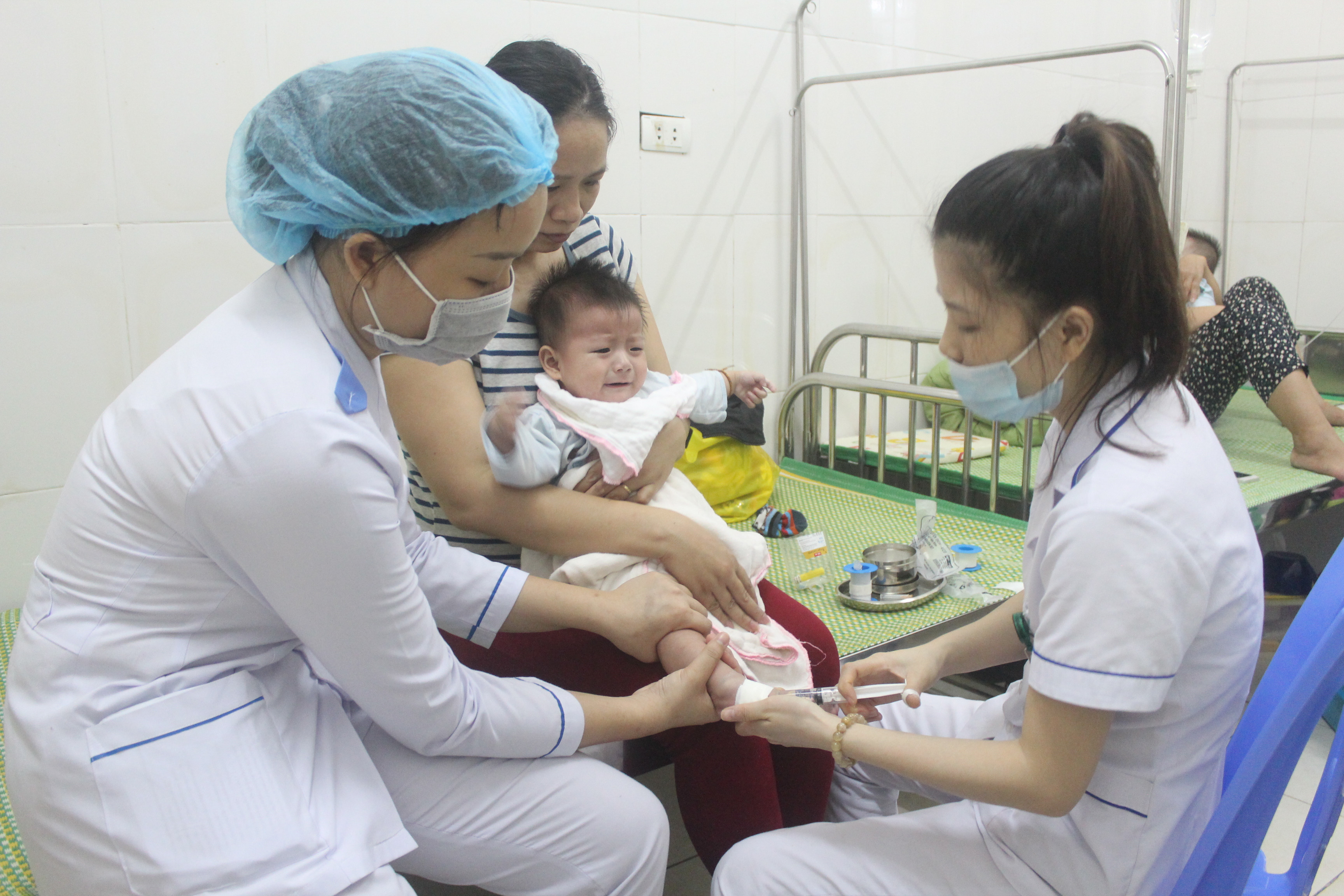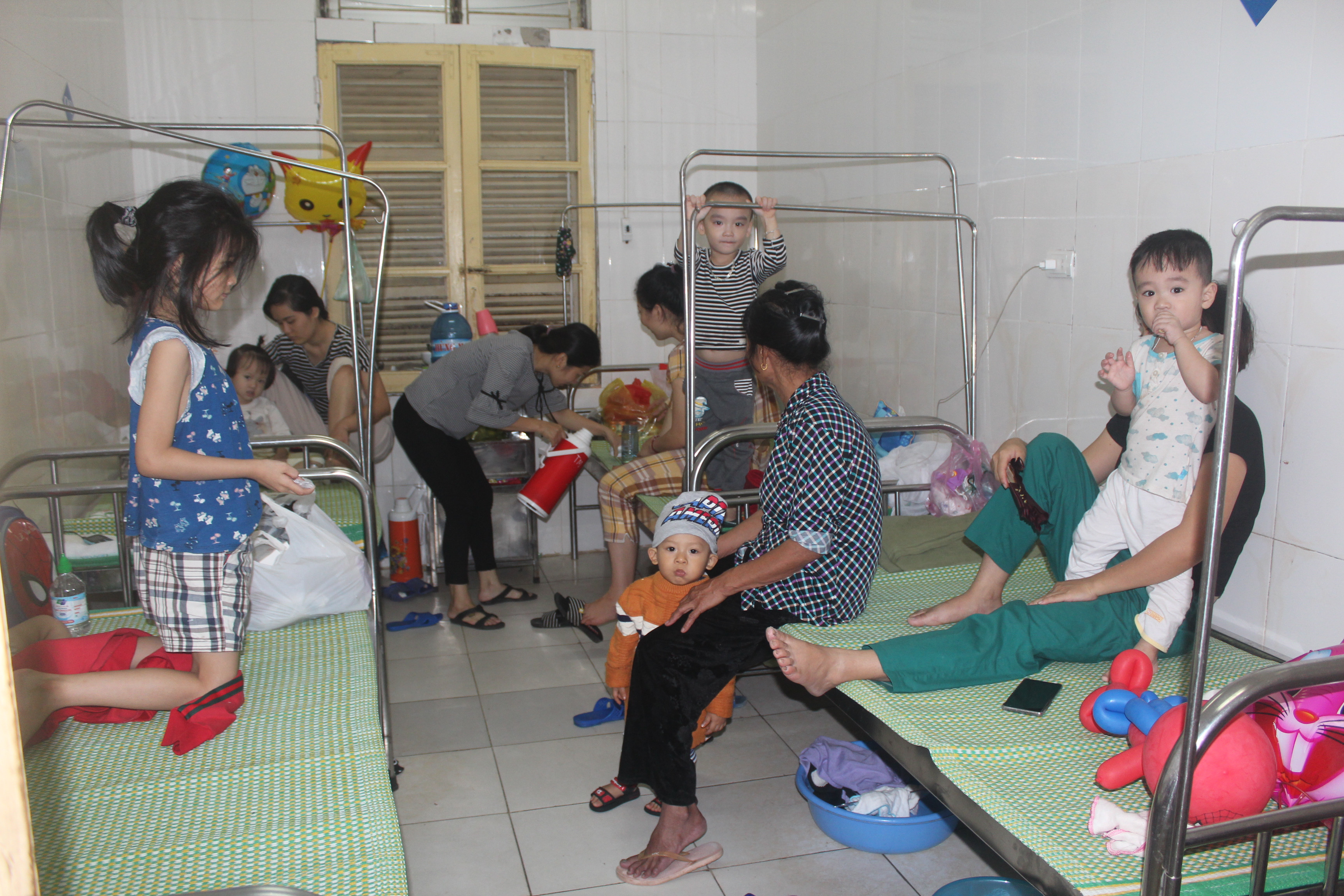Medical experts recommend disease prevention in cold season
(Baonghean) - In recent weeks, the weather has been changing erratically, cold and dry, causing the number of people hospitalized to increase, especially diseases transmitted through the respiratory and digestive tracts... Authorities have also issued many recommendations regarding this situation.
Nghe An Obstetrics and Pediatrics Hospital has been continuously receiving flu patients for over a month now. Every day, hundreds of patients come for examination, of which several dozen have to stay for treatment, with some peak days seeing nearly 50 patients admitted to the Tropical Diseases Department.
 |
| Many teachers continuously receive messages from parents asking for their children to stay home from school because of the flu. |
 |
| Doctors treat sick children. |
Usually the disease is mild and recovers within 2-7 days, but for children, the elderly, people with chronic heart, lung, kidney, metabolic diseases, anemia or immunodeficiency... the disease can progress more severely, easily develop complications and can lead to death, mainly caused by influenza A(H3N2), influenza A(H1N1) and influenza B virus strains. Cases of the disease tend to increase in winter and spring.
To prevent influenza, the most important thing is to ensure personal hygiene, cover your mouth when sneezing, wash your hands frequently with soap, clean your nose and throat daily with salt water; keep your body warm, eat nutritious food to improve your health; get a seasonal flu vaccine to prevent the disease; limit unnecessary contact with flu patients or suspected cases. When you have symptoms of cough, fever, runny nose, headache, fatigue, you need to go to a medical facility immediately for timely examination and treatment.
 |
| Many flu patients had to be hospitalized at Nghe An Obstetrics and Pediatrics Hospital. |
Experts emphasize that disease prevention and control is extremely important. However, people's awareness is still limited, and they have not voluntarily participated in disease prevention and control activities in the community. Some local authorities have not paid attention and have not resolutely directed disease prevention and control measures...
In the coming time, the weather will be colder, thus increasing the possibility of outbreaks of diseases transmitted through the respiratory and digestive tracts such as hand, foot and mouth disease, measles, rubella, whooping cough, meningococcal meningitis, highly pathogenic avian influenza, influenza A(H7N9), A(H5N1), diarrhea caused by Rota virus...
To proactively prevent and combat winter-spring epidemics, the Department of Preventive Medicine, Ministry of Health recommends that all people pay attention and proactively implement measures to improve health and prevent and combat epidemics as follows: Get vaccinated fully and on schedule (for diseases with vaccines such as measles, rubella, whooping cough, meningococcal disease, chickenpox, flu, etc.). Keep your body warm when the weather turns cold; keep children warm when riding motorbikes or going outdoors; when working outdoors or going outdoors at night or early in the morning, you must wear enough warm clothes, pay attention to keeping your feet, hands, chest, neck and head warm.
In addition, avoid contact with people showing signs of respiratory infectious diseases such as measles, rubella, whooping cough, meningococcus, chickenpox, flu... Ensure food safety, eat cooked food, drink boiled water, eat enough nutrients, eat lots of fruit to help the body increase vitamins, improve resistance. Eat a balanced diet of nutrients: starch, protein, fat, vitamins and minerals. Ensure personal hygiene, wash hands regularly with soap, clean nose and throat daily. Practice good environmental hygiene, family hygiene, use hygienic toilets. When there are signs of suspected infectious diseases, immediately notify the nearest medical facility for timely advice, examination and treatment.


